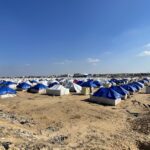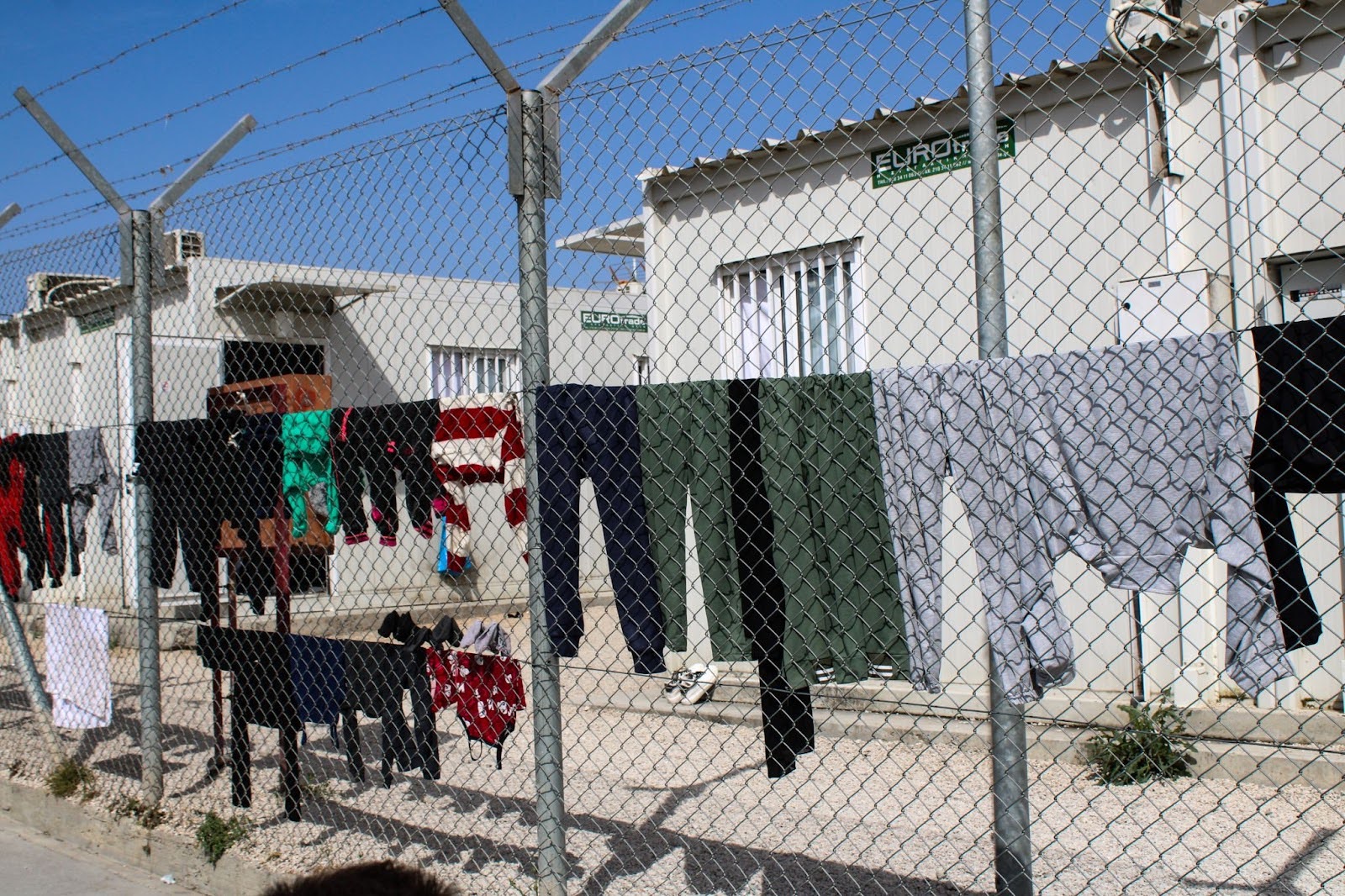On Tuesday, April 16, five small fishing boats carrying nearly 500 Syrian refugees set off from Lebanese shores and approached Cyprus. Before they could make it to the island, Cypriot authorities intercepted the boats and pushed them back to the country they had only just fled.
Basil Ali al-Sheyoukh, a 33-year-old father of six, was one among the passengers aboard the refugee boats that day. He had paid $350 to anonymous man using a Syrian phone number, just a portion of the total $2,650 fee charged for the quick boat ride to Cyprus.
Shortly after midnight, Basil’s boat crept away from Lebanon’s northern shores, he later recounted. The Lebanese coastguard briefly stopped the boats and warned the passengers of the dangers ahead, Basil said, but then let them continue into the dark waters.
Cyprus is the closest European Union (EU) member state to Syria and Lebanon. This year, the number of Syrians arriving to the island by boat has spiked. Throughout the first four months of 2024, at least 50 boats reached Cyprus, compared to just 10 during the same period last year, according to data from the United Nations refugee agency (UNHCR) in Cyprus. In response, Cyprus stopped reviewing Syrian asylum applications and has ramped up its policing of the seas.
“Screaming in Fear”
After about 10 hours — when the boats were roughly halfway between Cyprus and Lebanon — two Cypriot ship sped toward Basil and the other passengers. The vessels began to circle around them, creating forceful waves that rocked the small fishing boats back and forth.
Fearful that the waves could knock them into the rough waters, Basil said, he and the others aboard held on for their lives. “Everyone was screaming in fear,” Basil recalled. “We all were clinging to the boat, but they started hitting our hands with their batons. They shot guns [into the air] and shouted at us to return to Lebanon. We were so afraid.”
Basil also said that a woman went into labor and without proper medical attention, she and her baby passed away during childbirth.
We all were clinging to the boat, but they started hitting our hands with their batons.
– Basil Ali al-Sheyoukh
Alarm Phone, a hotline for migrants crossing the Mediterranean Sea to the EU, reported that the Cypriot police refused to give those aboard assistance and threatened them with guns and violence, echoing Basil’s testimony.
After hours of desperation stuck at sea, early Wednesday morning the boats had no other option but to turn back.
‘Inhumane’ Pushbacks
Rights groups have criticized Cyprus for failing to protect asylum seekers and migrants at sea. Cyprus is required to honor its international obligations to search and rescue shipwrecked persons, as well as to not hinder access to asylum and protection from refoulement, or forcible return.
“Pushing back vulnerable populations who are fleeing by sea is inhumane and denies those seeking refuge their most basic rights,” said Jesse Marks, the senior Middle East advocate for Refugees International, an independent humanitarian organization.
“Coordination between Cyprus and Lebanon has translated into the forced return of Syrian refugees captured or apprehended at sea back to Lebanon,” Marks explained. “Many of them are then deported back to Syria, where they initially fled and still face severe risks.”
“Nearsighted Policy”
Four of the boats, including Basil’s, returned to Lebanon’s northern coastal city of Tripoli on Wednesday afternoon, April 17. The fifth boat returned to the Syrian coastal city of Tartus, Muhammad Sablouh, a human rights lawyer in Lebanon, recently said in an interview with Syria Direct.
The Lebanese army intercepted one of the boats before it touched down. Sablouh has been in touch with the Lebanese army. Because seven or eight of the passengers did not have residency documents and had not registered with UNHCR in Lebanon, he said, the army deported them to Syria.
















